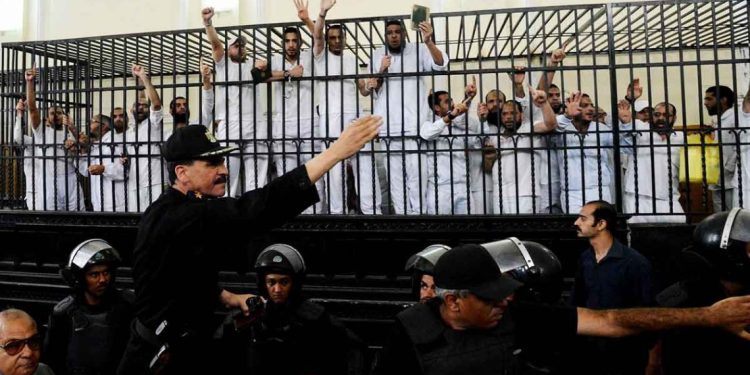Egyptian authorities are moving to open a new chapter of politically motivated trials, as Cairo’s Emergency State Security Court is scheduled to begin its first hearings on 22 September against around 50 detainees, including activists, rights defenders, and five relatives of opposition journalist Hesham Abdallah. They are charged in Case No. 1018/2020, known as the “State Security case.”
The case includes a wide range of accusations, most prominently “joining a terrorist group and financing it,” and involves prominent figures such as human rights lawyer Ibrahim Metwally, lawyer Mohamed El-Kassas, vice president of the “Egyptian Strong Party,” and a number of detainees who have been subjected to repeated “recycling” of detention charges after completing previous sentences.
The court assigned to review the case is the First Terrorism Circuit, which regularly handles high-profile political trials, often marked by lack of transparency and fairness.
The case dates back to December 2020, when State Security Prosecution ordered the detention of Ahmed Abdel Daim Abdallah (34, a limousine driver), son of journalist Hesham Abdallah, along with his father, who has been imprisoned for over two years pending similar charges.
Since then, authorities have expanded the scope of charges to include journalists, activists, and relatives of political opponents abroad, in what is widely known as the “recycling” of detention — the practice of re-accusing detainees in new cases immediately after their detention period expires.
This case comes within a deteriorating human rights environment, characterized by arbitrary detention, systematic targeting of activists and their families, and efforts to silence dissent both inside and outside the country.
The continuation of such trials, based on vague accusations, reflects a system of reprisals aimed at dismantling civil society and silencing individuals, ultimately threatening to destroy the entire public sphere.
It is worth recalling that dozens of detainees have died in Egyptian prisons in recent years due to medical neglect, poor detention conditions, and lack of adequate healthcare — highlighting the lethal consequences of these violations and placing direct responsibility on Egyptian authorities for the ongoing cycle of abuse.


























